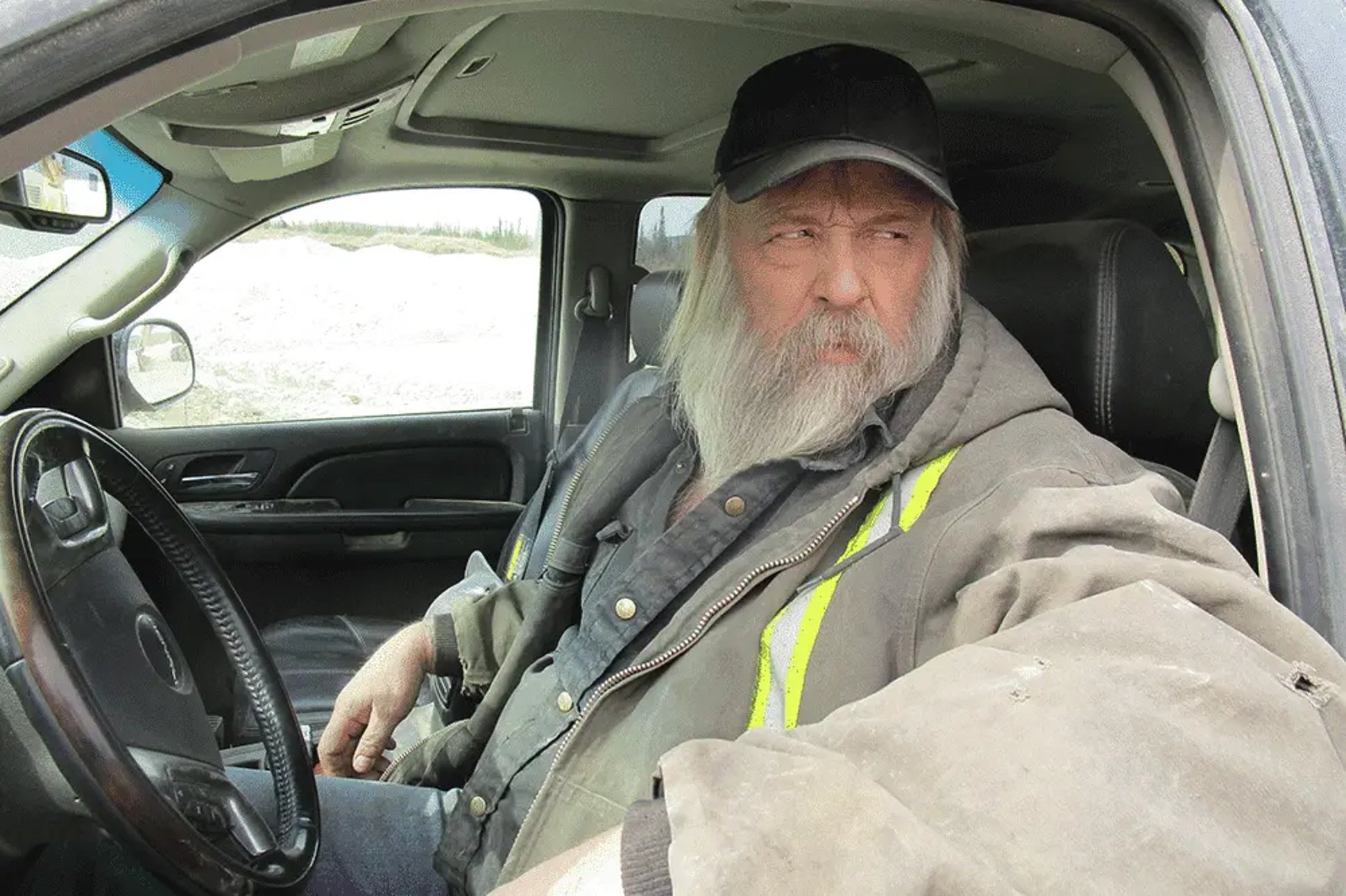STORY BY LEW FREEDMAN
Gold, the sexiest metal of all, has mesmerized man for millennia. The glow of it; the value of it. No modern individual has been more dramatically seduced by gold than Tony Beets, who makes his living mining it, lives his life finding it, and has made a reputation to reality-show cable watchers by letting them in on his adventures and secrets.
His tales of gold run through a sluice box downhill from hard rock to the minds of millions, simultaneously enrapturing them, entertaining them, and making them wish they could decamp to the wild to turn back the clock.

Beets is the 2021 personification of the Klondike, the mysterious Yukon, the gold panners and dreamers of the past chronicled by Jack London and Robert Service in the 1890s. That is when the great American-Canadian gold rush spread a passionate fever to get rich quick in men who threw over their stable lives and stampeded north with picks, shovels, tents, and stars in their eyes. The closest Walter Mittys of the moment now can hope to get is to click on the television for an hour at a time to watch Gold Rush and Beets and his Tamarack Gold Mines moving mountains for them.

Who knew there were so many armchair miners in North America?
Many live vicariously through Beets on the Discovery Channel. He was born in the Netherlands, worked a farm in Canada, and while he spends winters on a beach in Mexico, or in Tucson, Arizona, much of the time he lives in front of a television camera. Gold Rush made its debut in 2010, and Beets made his debut in the second season. His dredging, exploring, mining, and hunts for gold have been a focal point since.
Internet authors suggest Beets has made $5 million, $15 million, or $17 million mining gold. Under any definition, he has done well at the profession.
Beets is 5-foot-7 but looks taller on screen, weighs about 176 pounds but looks bigger, and has a full beard that challenges Santa Claus for impressiveness. On the show it looks as if he hasn’t had a haircut since before the pandemic. Onscreen he is casually attired— probably three people in the entire Yukon wear suits and ties to work— and his regular garb includes a baseball cap.
Beets seems at home in the rugged Yukon environment of wide-open spaces, mountains, lakes, and forest. He is his own boss and acts it, which likely appeals to many. His vocabulary is so salted with profanity, TV must frequently employ keyboard oddities like * and # to bleep words.
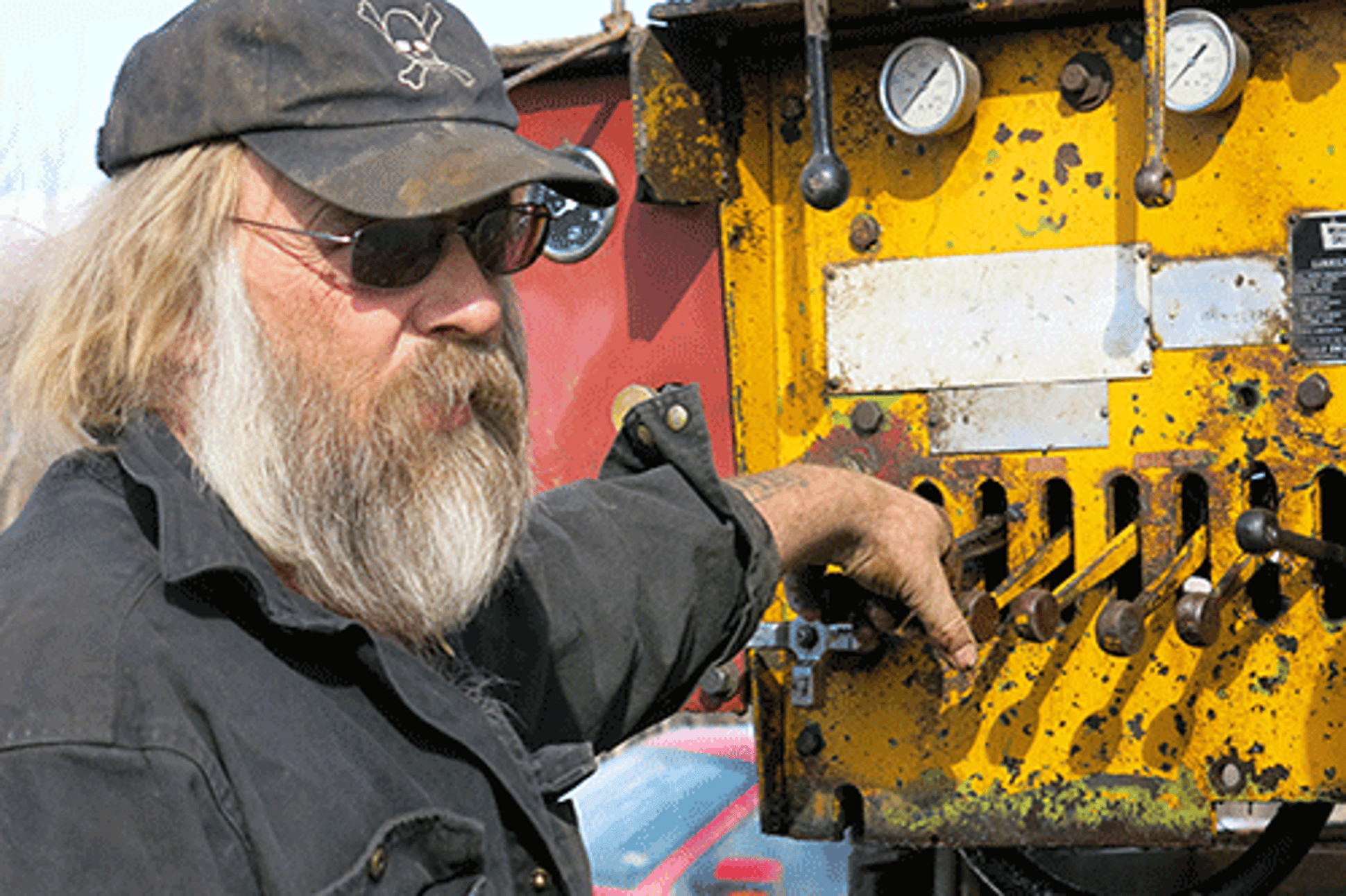
What comes through most directly, however, is his attitude, expounded upon in an interview from his Yukon home. “I have never had a day I didn’t love going to work,” he says of the last 37 years. “Finding gold and the challenges of it. I couldn’t want anything better than that.”
The original Klondike Gold Rush wooed about 100,000 prospectors northward between 1896 and 1899, though it was estimated only 30,000 made it to the Yukon. Hardship and romance, in reality and myth, attached itself to the story, the daunting climb over the Chilkoot Pass, the Royal Canadian Mounted Police seeking to impose order, men going broke, men gathering riches. There were boomtowns then and soon enough ghost towns.
Jack London, one of America’s great writers, suffered the cold in the Yukon and did not strike gold. But he said he found himself there, and he penned such classic novels as Call of the Wild and White Fang and numerous short stories from his experiences. As a hint of what type of cold London felt in the Yukon, he once said, “It’s colder than the hinges of hell a thousand years before the first fire was lighted.”
Robert Service wrote lasting rhyme about the North, in oh-so-few words, summing up so much. In part, his Spell of the Yukon read:
“There’s gold and it’s haunting and haunting;
It’s luring me on as of old;
Yet it isn’t the gold I’m wanting
So much as just finding the gold.
It’s the great, big, broad land ‘way up yonder,
It’s the forests where silence has lease;
It’s the beauty that fills me with wonder,
It’s the stillness that fills me with peace.”
London and Service got the spirit, what permeated the hopefuls’ souls, and related it to others, and that’s why they became so popular and have endured in print.

Gold is still big business for the Yukon, with a report indicating 83,000 crude ounces of gold were mined annually between 1978 and 2017. The Eagle Gold Mine, which moved into production in July 2020, is the largest in Yukon history. Its success is predicated on gold selling for $1,275 an ounce. Less than a year later, the price of gold was $1,883 an ounce. So those prospectors from the 19th century left some behind.
Beets, whose wife Minnie and four adult children, flit in and out of episodes, could afford not to ever start another dredge. But it’s apparent that while Beets may have his monetary security blanket, he relishes the thrill of the hunt. He is popular enough because of Gold Rush to be recognized in almost any North American community of size just by walking down the street.
Yet the aura he radiates is that he doesn’t need any of that stuff, and the self he portrays on reality TV is that this, the rushing after gold, not collecting yachts and sports cars and hanging out in the fanciest night clubs in New York or Hollywood, is what turns him on. It’s the finding of the gold.
On screen, and in conversation, Beets acts as if he is under pressure to find more gold. In the show, he talks of taking a six-figure risk to dig a new spot because the price of gold has gone up, so now it may be worthwhile and pay out. The days of standing by a stream sifting for color, a few flakes here or there, don’t cut it. Gold mining is a major operation in the Yukon and the biggest operators invest in big machinery, equipment that makes John Deere combines seem as inexpensive as WalMart children’s toys. Beets owns a $1-million dredge.
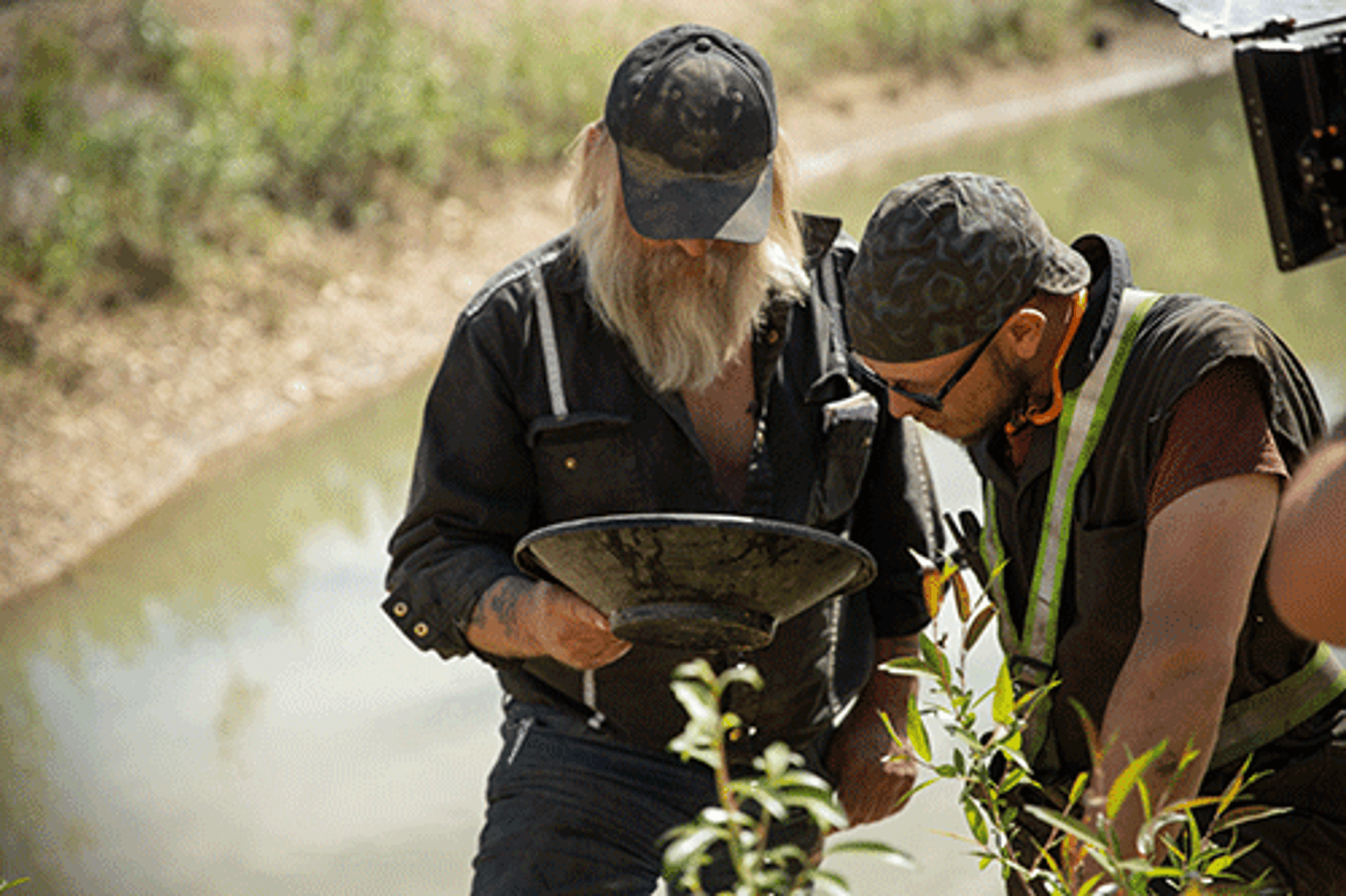
Tony Beets knows as well as anyone that gold has tinkered with men’s minds at least since ancient Egypt more than 5,000 years ago. The exhumation of tombs, from King Tut’s to others’ in Greece, dated from 1,500 years later, led to unearthing gold figures, masks, cups, and jewelry. Gold was always prized and revered. The British Broadcasting Corporation once researched why gold became the most appreciated of the 118 elements. Their study noted many elements eliminated themselves as currency because they were gases or liquids. A science website said perhaps gold has stood the test of time because children always liked shiny things.
There were mines in the Middle East and then Africa. More were worked in Mexico, Peru, and Colombia. Decades before the Klondike rush, there was the California Gold Rush, and one reason the United States government herded some Native-American tribes to reservations was the discovery of gold in South Dakota.
National economies are based on the gold standard, operating on a monetary system linking paper money to the precious metal. The allure of gold is the belief that even in a Depression it will never lose its value. “Gold always did [appeal to men],” Beets says. “These days, with it being priced so high, it adds a lot to it.”
When Beets says the price of gold has been running high, it is no exaggeration. Gold is hot again. That $1,883 per-ounce price is eye-catching. In the late 1890s, when the world poured into the Klondike, gold was valued at $20.67 an ounce.
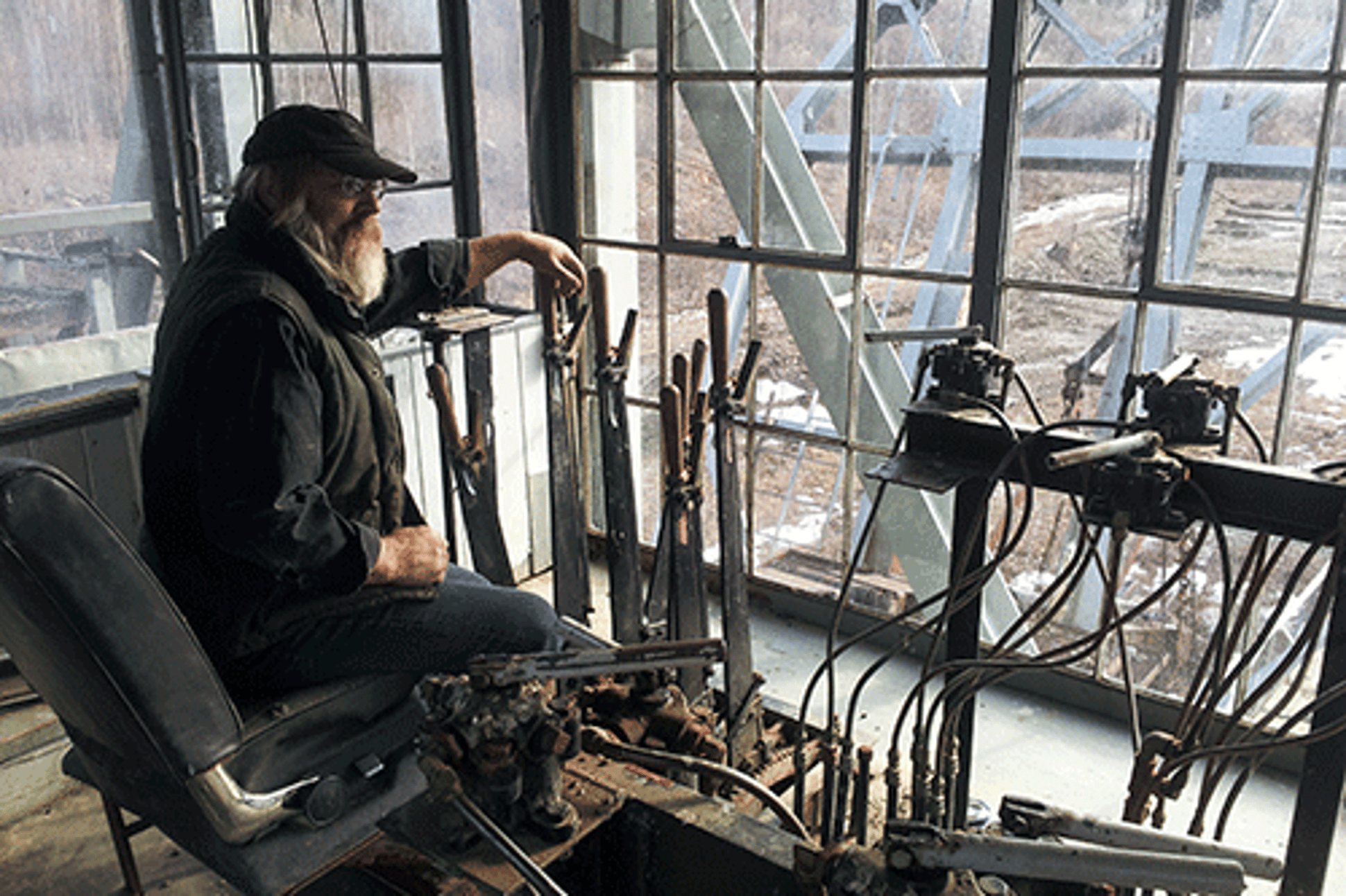
The gold season in the Yukon typically begins in March, although in March of this year there was a sustained cold snap of minus-30 degrees (Fahrenheit), which is not hospitable weather for outdoor work. Winter comes early to the region, and snow flies and sticks by November. When he is in the North, Beets says he works every day. He gets his sunshine the other half of the year.
In some Gold Rush episodes, Tony Beets can be seen talking things over with the family, deciding whether the time is ripe to dig while gold’s value increases by the ounce. There was land he had let lie fallow because in past years it would have cost too much to dredge for a proper return. Chasing the color in the hills may require huge investment, and if it’s a bust, the adventure goes on the books as a loss.
“Sometimes you’ve got to gamble a little bit too,” he says. It was somewhat like playing dice in a casino. Technology for digging is always evolving, as technology does in most realms, so what would surely be an unprofitable dig in the past might work out now. Gazing at a rock face, Beets says, “Some of this definitely looks like paydirt.”
On occasion, to maximize his odds, and go forward on more than instinct, Beets brings in a soil expert with the right equipment and savvy to take a reading that will indicate if a deep dig is a worthwhile risk. “Tony has high expectations for this ground,” says Liam Ferguson, who dug two expensive test holes 300 feet apart in one area, costing Beets $20,000. The first hole turned out dry, but the second one held promise.
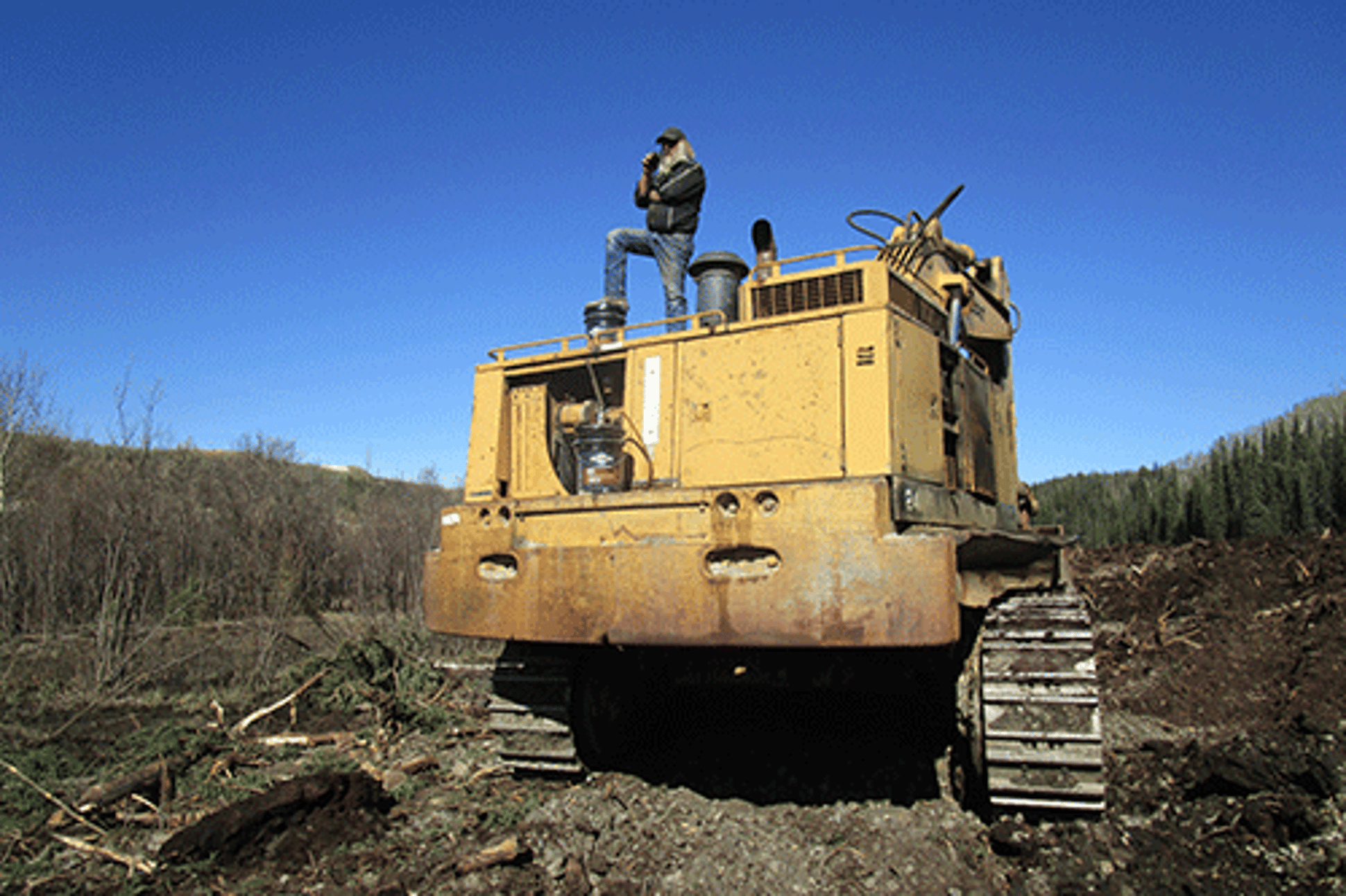
The Yukon is mostly void of humans in cold weather except for dog mushers. Tourists roam during the short summer. Dawson, near Beets’ digging grounds, mushroomed from at best a speck on the map in 1896 to a mostly tent city of 40,000 within two years, then went bust with the evaporation of the miners. Its current population is around 1,400 and does not sport the heady nightlife it once did.
Wandering people aside, there might be a bear or a moose casually strolling into the background of a TV shot while Tony Beets and family are dredging, though he said he has not had a conflict with any of the Yukon’s big, grumpy animals.
Gold price increases have resurrected Dawson slightly. Beets’ placer mining and the camera crew that follows him improve the local economy. Beets is an outdoors guy, whose mind is oriented to digging, but because he is a TV personality, that means he has a following. Minnie, though, takes care of the Facebook mail. She screens questions and comments fans send. The two most common, Minnie says, are, “They want jobs.” Or, “They ask for money.”
Ask for money. Tony Beets is in the business of finding gold, not giving it away for free.
